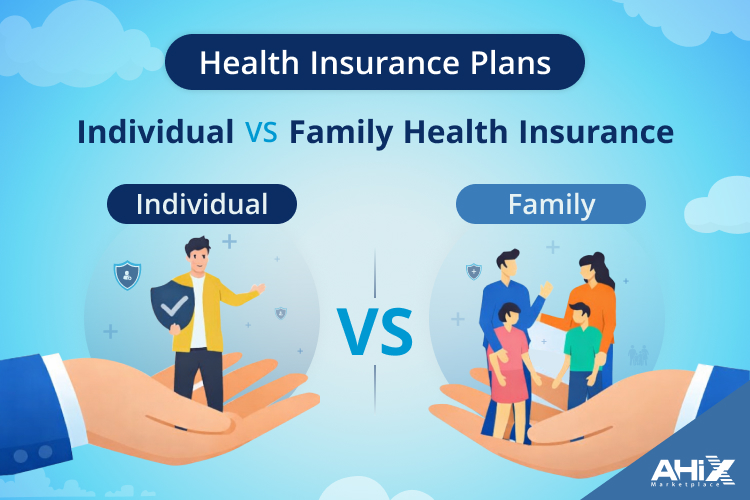What Are ACA Plans?
ACA plans, also referred to as Affordable Care Act policies or “Obamacare” health plans, are designed to provide affordable and comprehensive healthcare coverage. These health insurance options were established to ensure that all Americans have access to quality medical care. Affordable Care Act plans cover a wide range of medical services, from routine check-ups to emergency care, helping individuals and families get the healthcare they need without facing excessive costs.
Plan Categories
ACA health plans are categorized into four “metal” tiers: Bronze, Silver, Gold, and Platinum. Each tier represents a different level of coverage and cost-sharing:
- Bronze Plans: These plans have the lowest monthly premiums but the highest out-of-pocket costs when you receive care. They cover about 60% of your medical expenses, making them a good choice if you want low monthly payments and are willing to pay more when you need medical care.
- Silver Plans: Silver plans offer a moderate balance between monthly premiums and out-of-pocket costs. They cover roughly 70% of medical expenses. These plans are a popular choice because they offer additional cost-sharing reductions for those who qualify, making healthcare more affordable.
- Gold Plans: Gold plans have higher monthly premiums but lower out-of-pocket costs. They cover about 80% of your healthcare expenses, making them ideal if you expect to need regular medical care and want lower costs when you do.
- Platinum Plans: These plans have the highest monthly premiums but the lowest out-of-pocket costs. They cover about 90% of medical expenses, providing the most comprehensive coverage with minimal expenses when you receive care.
Additionally, there’s a Catastrophic Plan option available for people under 30 or those who qualify for a hardship exemption. This plan offers low monthly premiums but comes with high deductibles, only covering essential health benefits after the deductible is met.
Eligibility and Enrollment
To enroll in an ACA plan, you must meet specific eligibility criteria. Generally, these plans are available to U.S. citizens and legal residents. People who qualify for Medicaid or CHIP may not be eligible for ACA subsidies but can still use the marketplace to apply for those programs.
Eligibility for financial assistance, like premium tax credits and cost-sharing reductions, depends on your household income. Typically, these subsidies are available to individuals and families with incomes between 100% and 400% of the federal poverty level (FPL). Special provisions also exist for Native Americans and Alaska Natives, who may receive additional benefits. Furthermore, individuals experiencing life changes, such as marriage, childbirth, or losing other coverage, may qualify for a Special Enrollment Period to sign up for an ACA plan outside of the standard open enrollment window.
Essential Key Benefits of ACA Plans
One of the most significant advantages of ACA compliant health plans is the comprehensive coverage they provide. These Benefits of ACA Plans ensure that individuals and families receive a wide range of essential healthcare services, helping them maintain good health and manage medical costs effectively.
Essential Health Benefits
ACA health insurance are required to cover a set of ten essential health benefits, ensuring that policyholders have access to necessary healthcare services. These benefits include:
1. Outpatient Services: Also known as ambulatory patient services, this includes care you receive without being admitted to a hospital, such as doctor visits, outpatient surgeries, and other outpatient treatments.
2. Emergency Services: Coverage for emergency room visits and urgent medical needs without requiring prior authorization or network restrictions, ensuring that you can get help when you need it most.
3. Hospitalization: This includes care you receive when admitted to a hospital, such as surgery, overnight stays, and other inpatient treatments.
4. Maternity and Newborn Care: Comprehensive coverage for pregnancy, childbirth, and newborn care, providing essential support for expecting mothers and their babies.
5. Mental Health and Substance Use Disorder Services: Coverage for mental health treatment and substance use disorder services, including counseling, therapy, and inpatient care, helping individuals manage and recover from these conditions.
6. Prescription Drugs: Coverage for a wide range of medications, ensuring access to necessary treatments as prescribed by healthcare providers.
7. Rehabilitative and Habilitative Services: These services help individuals recover skills lost due to injury or illness (rehabilitative) or develop skills they have not yet acquired (habilitative), such as physical and occupational therapy.
8. Laboratory Services: Coverage for lab tests and screenings that help diagnose and monitor various health conditions.
9. Preventive and Wellness Services: Access to preventive care, such as screenings, immunizations, and regular check-ups, without any cost-sharing. This is designed to catch potential health issues early and keep people healthy.
10. Pediatric Services: Comprehensive care for children, including dental and vision care, ensuring the health and well-being of younger family members.
These essential health benefits make ACA plans a robust choice for individuals seeking comprehensive healthcare coverage. They cover a wide spectrum of medical needs, providing peace of mind and financial protection against high medical costs. The Benefits of ACA Plans extend to various aspects of health, offering security and accessibility to necessary medical services.
Common Misconceptions about ACA Plans
There are many myths about Affordable Care Act health insurance, and it’s important to clear them up so people can make informed choices about their health insurance.
1. ACA Plans Are Too Expensive
While it’s true that ACA plans can be costly for individuals who do not receive premium tax credits, the majority of people do qualify for these credits. In fact, 4 out of 5 people pay $10 or less per month for their health insurance. These credits, based on income, make ACA plans much more affordable. Additionally, there are different types of plans available, so you can choose one that fits your budget.
2. ACA Plans Offer Limited Coverage
Another common myth is that ACA plans don’t cover much. In reality, they cover a wide range of essential health benefits. This includes things like hospital stays, prescription drugs, preventive care, and mental health services. These plans are designed to provide comprehensive coverage, so you have protection for various medical needs.
3. Only Low-Income Individuals Can Get ACA Plans
Some people think that Obamacare plans are only for those with low incomes. This is not true. While the ACA does offer subsidies to help low- and moderate-income individuals, anyone can apply for an ACA plan. The marketplace offers different plans for all income levels, and many people qualify for financial assistance, making these plans accessible to a broader audience.
4. Clarifying Misunderstandings
It’s crucial to set the record straight about ACA plans. These plans are available to everyone and offer extensive benefits, making them a great choice for comprehensive and affordable healthcare. With the correct information, you can understand the true value of ACA plans and how they can provide the necessary coverage and financial protection.
Conclusion
ACA plans offer essential health benefits, including preventive care, hospitalization, and mental health services, making them a comprehensive choice for healthcare coverage. They provide financial protections like premium tax credits and cover pre-existing conditions, ensuring accessible and affordable care for all.
During the open enrollment period, it’s crucial to explore your ACA plan options to find coverage that fits your needs and budget. These plans are available to everyone and offer valuable benefits, not just to low-income individuals.
To enroll, visit the Health Insurance Marketplace, compare plans, and check for financial assistance. If you’ve had a qualifying life event, you may also be eligible for a Special Enrollment Period. For more information, visit AHiX or consult with an insurance agent.
FAQs: Understanding ACA Plans
-
What do ACA plans cover?
ACA health coverage cover a wide range of essential health benefits, including outpatient services, emergency services, hospitalization, maternity and newborn care, mental health services, prescription drugs, rehabilitative and habilitative services, laboratory services, preventive and wellness services, and pediatric services. These comprehensive ACA plan benefits ensure that most medical needs are covered.
-
Can I get ACA coverage if I have a pre-existing condition?
Yes, ACA plans do not discriminate based on pre-existing conditions. You cannot be denied coverage or charged higher premiums due to your health history, making ACA plans a great choice for those with pre-existing conditions.
-
How can I apply for an ACA compliant health plans?
You can apply for ACA plans during the open enrollment period via the Health Insurance Marketplace. If you experience a qualifying life event, you may also be eligible for a Special Enrollment Period. This allows flexibility in enrolling in ACA health insurance outside the standard period.
-
What financial assistance is available for ACA plans?
The ACA offers premium tax credits and cost-sharing reductions to help lower the cost of insurance. Eligibility for these subsidies depends on your household income and size. Affordable healthcare through ACA plans is made possible with these financial aids.
-
Are ACA plans for low-income individuals?
No, ACA plans are available to everyone, regardless of income. Financial assistance, such as subsidies for ACA plans, is available to help make these plans more affordable for low- and moderate-income individuals.
-
How do I choose the right ACA plan?
When selecting an ACA plan, consider factors like monthly premiums, out-of-pocket costs, coverage needs, and the network of doctors and hospitals. Comparing plans on the Health Insurance Marketplace can help you find the best ACA plan for your situation.
-
What happens if I miss the open enrollment period?
If you miss the open enrollment period, you can only enroll in an ACA plan if you qualify for a Special Enrollment Period due to a qualifying life event, such as marriage, birth of a child, or loss of other coverage. This ensures continuous access to ACA health coverage even outside the standard enrollment window.



